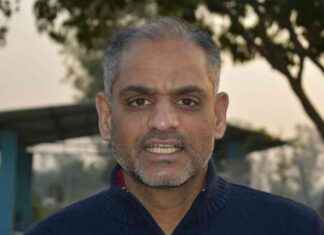Before the drawing of lots for a citizens’ council on the subject of nutrition, Bundestag President Bärbel Bas defended the new body. This is “an enrichment and not a side parliament, as critics say,” said the SPD politician on Friday in the ARD “Morgenmagazin”.
There are hearing procedures with experts in the Bundestag, but no body in which a topic is explicitly discussed with citizens. She expressed the hope that “the gap between our institution, the German Bundestag, and the citizens might be narrowed a bit”. “It’s not a panacea, but it might be a way to build bridges again.”
The 160-strong citizens’ council is to debate how Germany can eat healthier and more sustainably. The appointment was decided by the Bundestag with the votes of the traffic light coalition and the left. The participants will be drawn at random on this Friday afternoon. They are scheduled to start their work at the end of September and within a few months they will draw up a “citizen’s report” with recommendations for action.
The Citizens’ Council should be filled at random, but the age, gender, level of education and regional origin of the members should still be as balanced as possible. The Ampel parties had already agreed in the coalition agreement: “We want to improve decision-making by using new forms of public dialogue such as citizens’ councils, without giving up the principle of representation.”
Bas argued that MPs were often unaware of the “silent middle” opinion. “Even when I hold citizens’ consultation hours in my constituency or I invite people to a citizens’ meeting, those who already have an opinion on this topic always come to me and say: I want you to push this through in the Bundestag.” Now the Citizens’ Council has a representative composition “where people come together that I might not otherwise meet as a member of parliament.”










